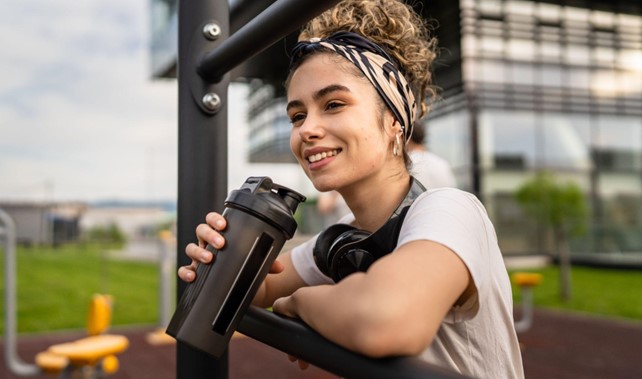There is a spectrum of energy needs that can be addressed, however, ranging from a quick burst of energy to sustained energy for the day. Also, some women want energy products to help them recover their energy after it drops (like an afternoon snack or a post-workout shake), while others seek solutions to prevent energy dips altogether. These women are often mindful of glycemic index and prefer products with protein and fiber, rather than caffeine-based products.
2. Women's Health Issues
More than one-quarter of Gen X and Boomer women and one-third of Gen Z and Millennial women think doctors and other health professionals don’t understand enough about women’s health issues.2 This points to an opportunity for brands to connect with women by providing clear, accurate information on key health issues and offering innovative science-backed solutions.
There is significant potential in reproductive health products that offer targeted nutritional support during menstruation and perimenopause to prevent nutrient deficiencies (particularly of iron, calcium, and vitamin D), as well as functional ingredient benefits to manage energy and mood.
44% of Millennial and 50% of Gen X women want to know more about how nutrition and supplements can help perimenopause, while 55% of Gen Z women would like to learn more about how the menstrual cycle impacts how they feel when exercising at different time of the month.3 Another opportunity area is healthy aging products for women that include heart, bone, and cognitive health support ingredients, which can be added with a custom blend.
3. Stress Management
Three out of ten women currently suffer from stress or anxiety, with the highest rates occurring among the younger generations.4 Uncertainty about the political economy, rapid changes in technology, and lingering societal effects of the pandemic have all added to the typical daily stresses that women experience.
% of Women Experiencing Stress or Anxiety by Generation
Many women today intuitively understand that managing stress requires a holistic approach—encompassing balanced nutrition, regular exercise, healthy sleep, and more—and are open to ideas and products that can help them restore the feeling of physical and mental wellness.
Products positioned for stress management that feature terms like “calming,” “balance,” or “total wellness” can resonate with these consumers. One formulation approach is to add ingredients for relaxation, such as L-theanine and chamomile, or sleep support, such as tryptophan and melatonin. Botanical adaptogens like ashwagandha and Rhodiola, associated with traditional herbal medicine and helping the body adapt to stress, are also becoming popular choices.
4. Weight Management Through Exercise
Losing weight is the top motivation for exercising for Gen Z, Millennial, and Gen X women.5 By contrast, the leading exercise drivers for men are muscle and strength building (for Gen Z) and heart health (for the other generations).6






